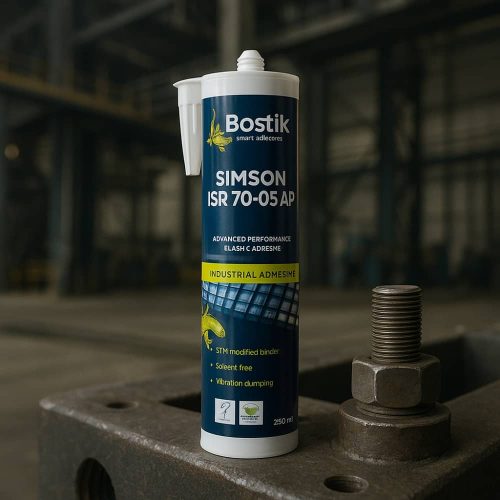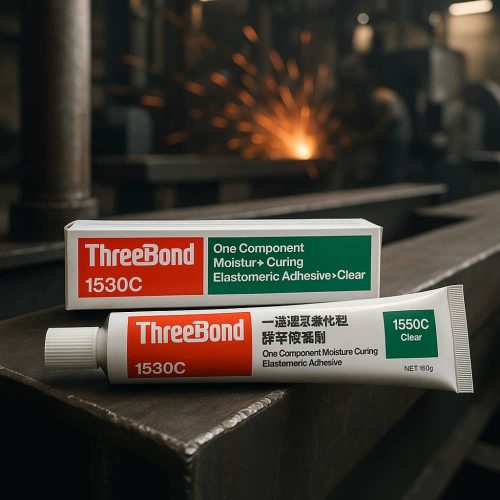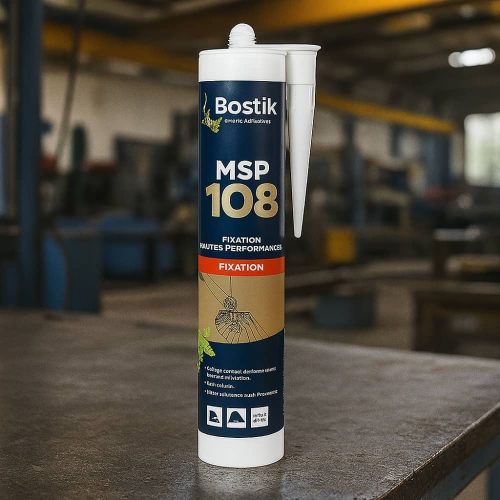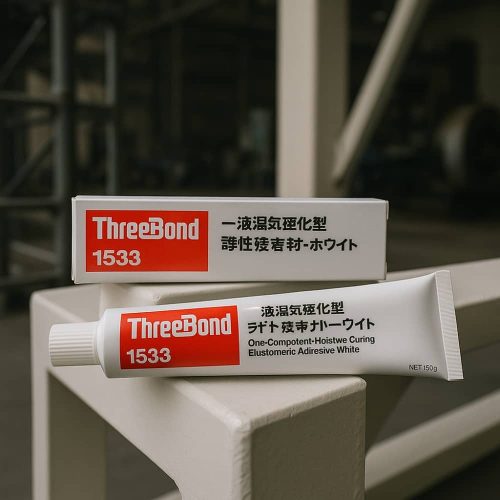A polymer glue is a high-performance hybrid adhesive based on modified polymers, often of the MS (Modified Silane) type.
It combines the advantages of elastomeric sealants and structural adhesives: flexibility, elasticity, multi-substrate adhesion, shock and vibration resistance.
Polymer glue is a versatile adhesive used for gluing, assembling or sealing in many industrial sectors: building, transport, fittings, metal construction, etc.
It adheres to many substrates without primer (metal, wood, plastic, concrete, glass, etc.) and can even be applied to damp substrates.
Thanks to its mechanical and environmental performanceIt is gradually replacing traditional polyurethane adhesives.




Le polymer mastic glue is therefore the technical choice for critical assemblies, flexible assemblies or areas sensitive to dynamic stresses.
Its great flexibility allows it to absorb material movements. Perfect for expansion zones or removable assemblies.
Packaged in cartridges or pouches, it is applied in the same way as a traditional sealant, but with a higher level of protection. superior mechanical strength. Can replace silicone, acrylic or PU in many cases.
Combines the advantages of polyurethane (PU) adhesive with those of MS adhesive: strong appealThe product is solvent-free, resistant to outdoor conditions and can be applied to damp surfaces.
We support your assembly projects with dedicated technical supportWhether for finishing gluing or more demanding assemblies.
Are you hesitating between a hybrid polymer adhesive and a polyurethane glue ? Are you looking for a polymer mastic glue suitable for a humid or vibrating environment?
📩 Contact us for a sample, a personalised quote or a quick technical recommendation.
It's an adhesive based on modified polymers (often MS), which combines the flexibility of mastics with the strength of structural adhesives. It is solvent-free, odourless and adheres to almost all substrates.
Polymer glue is more flexible, ecological and easy to apply. PU glue is more rigid, suitable for structural assemblies. Polymers are more comfortable to use.
Yes, once fully cured, most polymer adhesives can be painted over with conventional paints.
Yes, unlike other adhesives, it adheres very well even on slightly damp substrates.
It can reach up to 20 kg/cm2 depending on the formulation. It remains flexible, however, making it ideal for substrates subject to movement.
Polymer glue is more respectful of the environmentIt is more flexible, odourless and isocyanate-free. It is ideal for interior use or sensitive materials. PU glue remains more rigid and slightly stronger for very rigid structural assemblies.